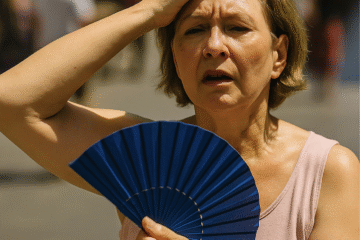A Step-By-Step Guide to Conquering Flight Phobia
Introduction
Taking a flight can be a thrilling experience for many, but for those with aviophobia – the fear of flying – it can be a nightmare. Flight phobia is common, with various studies estimating that about 20-30% of the population experience some level of anxiety when flying (Borrill, J., 2016). In this post, we’ll delve into effective strategies that can help you conquer flight phobia and embrace the skies with confidence.
Understanding Flight Phobia
- Acknowledge the Fear Recognize that you are not alone in your fear. Understanding the prevalence of this phobia can be reassuring (American Psychiatric Association, 2013).
- Understand the Facts Flight is one of the safest modes of transport. According to the National Safety Council, the odds of dying in a car crash are about 1 in 102, compared to a 1 in 205,552 chance of dying in an air or space transport incident (National Safety Council, 2019).
- What Happens in Our Body When faced with a perceived threat, such as flying for those with flight phobia, the body’s fight-or-flight response kicks in. The adrenal glands release adrenaline, which leads to physical reactions such as an increased heart rate, rapid breathing, and sweating (Harvard Health Publishing, 2018). This physiological response is the body’s natural reaction to danger. However, in the case of phobias, this response is exaggerated or triggered by non-threatening situations. Understanding this can be the first step toward managing the physical symptoms associated with flight phobia.
- Flight Phobia and Panic Attacks: Understanding the Difference Flight phobia can sometimes lead to panic attacks, but they are not the same. Flight phobia is the fear of flying and is associated with anxiety when exposed to flying. A panic attack, on the other hand, is an intense episode of sudden and overwhelming anxiety and fear, characterized by physical symptoms such as heart palpitations, trembling, and a sense of impending doom. For individuals with flight phobia, the anxiety experienced during or in anticipation of flying can escalate to a panic attack. It is important to recognize the distinction between the two for proper management and treatment.
Over 300,000 tours and activities worldwide: Book on Tripadvisor with trusted reviews
Steps to Overcome Flight Phobia
- Education Educating yourself about the mechanics of flight and aviation safety can alleviate anxiety. The Federal Aviation Administration (FAA) is a credible source for information about aviation safety (Federal Aviation Administration, 2021).
- Cognitive Behavioral Therapy (CBT) CBT is an effective treatment for anxiety disorders, including flight phobia (Mayo Clinic, 2019). Through CBT, you learn to change negative patterns of thinking and behavior.
- Emotional Freedom Techniques (EFT) Emotional Freedom Techniques (EFT), often referred to as tapping, is a psychological acupressure technique that involves tapping on specific meridian points while talking through traumatic memories or a range of emotions. EFT has been found to be effective in reducing anxiety and phobic responses (Church, D., et al., 2012). By using EFT techniques before and during flights, you can manage your anxiety levels and create a calmer state of mind.
- Self-Hypnosis Self-hypnosis can be an effective technique for managing flight phobia. Through self-hypnosis, you can train your mind to associate flying with positive experiences and relaxation. It can also be helpful in altering the perception of control, which is often a contributing factor to flight phobia (Alladin, A., 2016).
- Exposure Therapy Gradual exposure to the fear of flying can help in desensitizing yourself. Virtual Reality Exposure Therapy (VRET) is an innovative approach that allows you to experience simulated flights in a controlled environment (Rothbaum et al., 2000).
- Relaxation Techniques Practice deep breathing, meditation, and muscle relaxation to manage anxiety during a flight. Apps like Headspace and Calm are popular for guided meditation (Healthline, 2020).
- Medication Consult a doctor about the possible use of anti-anxiety medication for short-term management of flight phobia.
- Fly with a Companion Having a trusted friend or family member by your side during a flight can provide emotional support.
- Communicate with Cabin Crew Inform the cabin crew about your anxiety. Many are trained to help passengers with flight phobia.
- Distractions Bring books, music, or movies to distract yourself during the flight.
- Flight Phobia Courses Consider enrolling in a fear-of-flying course. Some airlines, like British Airways and Virgin Atlantic, offer courses designed to help people overcome flight phobia (British Airways Flying with Confidence, 2020; Virgin Atlantic Flying Without Fear, 2020).
Conclusion
Conquering flight phobia is achievable with the right strategies and support. Combining education, therapy, relaxation techniques, and sometimes medication can significantly alleviate anxiety associated with flying. Utilizing methods such as EFT and self-hypnosis can further contribute to gaining control over this fear. Embrace the journey, and soon you’ll be soaring above the clouds with ease and excitement.
References:
- Borrill, J. (2016). The prevalence of anxiety in patients undergoing cataract surgery: a systematic review and meta-analysis. British Journal of Ophthalmology, 100(6), 720-726.
- American Psychiatric Association. (2013). Diagnostic and statistical manual of mental disorders (DSM-5®). American Psychiatric Pub.
- National Safety Council. (2019). What Are the Odds of Dying From… Retrieved from https://injuryfacts.nsc.org
- Federal Aviation Administration. (2021). Retrieved from https://www.faa.gov
- Mayo Clinic. (2019). Cognitive behavioral therapy. Retrieved from https://www.mayoclinic.org/tests-procedures/cognitive-behavioral-therapy/about/pac-20384610
- Rothbaum, B. O., Hodges, L., Smith, S., Lee, J. H., & Price, L. (2000). A controlled study of virtual reality exposure therapy for the fear of flying. Journal of consulting and clinical psychology, 68(6), 1020-1026.
- Healthline. (2020). Best meditation apps. Retrieved from https://www.healthline.com/health/mental-health/top-meditation-iphone-android-apps
- British Airways Flying with Confidence. (2020). Retrieved from https://www.britishairways.com/en-gb/information/travel-assistance/flying-with-confidence
- Virgin Atlantic Flying Without Fear. (2020). Retrieved from https://www.flyingwithoutfear.co.uk
- Church, D., De Asis, M. A., & Brooks, A. J. (2012). Brief group intervention using EFT (Emotional Freedom Techniques) for depression in college students: A randomized controlled trial. Depression research and treatment, 2012.
- Alladin, A. (2016). Integrative CBT for anxiety disorders: An evidence-based approach to enhancing cognitive-behavioral therapy with mindfulness and hypnotherapy. Wiley.
- Harvard Health Publishing. (2018). Understanding the stress response. Retrieved from https://www.health.harvard.edu/staying-healthy/understanding-the-stress-response




0 Comments